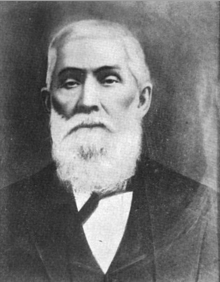Mary Jane Ross
Mary Jane Ross (November 5, 1827 - Jul 29, 1908) was born in Tennessee to the most prominent Cherokee family of the nineteenth century.
The Ross family led the Cherokee Nation through some of its most tumultuous historical events, including the Trail of Tears and the American Civil War.
Born to affluence and a would-be domestic life of leisure, Ross excelled in her studies, was a talented musician, contributed to the support and aid of Cherokee orphans after the Civil War, and endured a life uprooted by the forced removal of the Cherokee people on the Trail of Tears, followed by the hardships of the Civil War.
Upon her husband's death, Ross took up the work of authoring and editing large portions of his biography which she submitted for publication to the Library of Congress.
The institute offered a revolutionary higher education curriculum to young women and earned a national reputation for its inclusion of botany, chemistry, and mathematics in a time when it was uncommon for girls to learn math and science.
Ross' biography, Mary Jane makes a point to highlight how beloved he was to friends, family, and the wider Cherokee Nation.
For the last seven months the storm of war has howled so fearfully around us, that we have found it hard to compose ourselves sufficiently to write even to our best loved absent friends ...
Inside the house, her nice side board was broken, one door split nearly down and all the feathers spilt upon the floors and the ticks [mattresses] taken by Stand Watie's men.
In August 1863, she wrote a letter expressing her anxieties about the future of the Cherokee Nation after her home in Fort Gibson was burned to the ground.
Where we will find another home I cannot say, but I still intend to go back to the Nation, but whether there will be peace, safety, and pleasure living there for a long time to come is doubtful.
[16] Mary Jane and William Potter Ross eventually returned to the Cherokee Nation when Union forces occupied the area.
[19] In 1872, The Cherokee Nation began considering possible locations for an orphanage, including Mary Jane's family home, owned by her father Lewis Ross, who died in 1860.
Lewis Ross' home was a large three-story brick house located along the Grand River in the Salina District with the potential for expansion.
To his many friends in the Cherokee Nation and elsewhere who have honored him, and to his cousin, Joshua Ross, whose labors we so highly appreciate, is this volume respectfully dedicated by his wife, MRS. WM.
Her cousin, Jane Nave, sent a deeply personal letter on the same day of her husband's death, highlighting how important he was to his wife.



